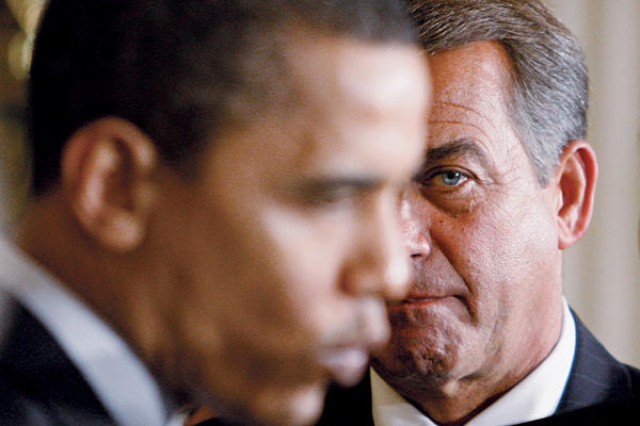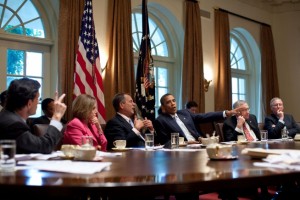ANALYSIS: “Fiscal Cliff” Consequences for Hawaii
By Nate Gaddis
For a nation that supposedly sucks at math, we’ve sure been throwing around a lot of percentages lately.
The “99%” got royally ticked off when presidential candidate Mitt Romney told a few rich guys that 47% of Americans believe “that they are victims…entitled to health care, to food to housing…you name it.” Republican Senator Orrin Hatch helpfully corrected Romney, claiming the number was closer to 51%.
Back here in Hawaii, where we account for 0.445% of the nation’s population, we rarely factor into the national debate, and many of us like it that way.
But the current numerical belle-of-the-ball in Washington could have a huge impact on our laid back lifestyles, and is worth paying attention to. That figure happens to be 98%.
Democrats are pushing to extend Bush-era tax cuts for 98% of Americans, while allowing tax rates to increase next year for individuals earning over $200,000 per year (or families making more than $250,000). Republicans are refusing to give up tax breaks for upper income earners, insisting instead on larger cuts to massive entitlement programs like Medicare.
Republican opposition to the “98%” plan centers around the potential impact of a tax increase on small businesses. The US Treasury department estimates that around 4% of small businesses would be affected by raising taxes on those earning more than $250,000 per year. Apart from the small business impact, Republicans insist such a plan would roil financial markets, and discourage new business ventures.
Here in Hawaii, just over 2% of residents earned more than $200,000, according to 2010 data.
Although the debate is happening far from our shores, if the two parties fail to reach an agreement by January 1st 2013, the impact here will be profound. Hawaii could lose over $900 million in revenue as consumers nationwide struggle with higher tax burdens, according to a report by the Council of Economic Advisors.*
The typical Hawaii resident would also be hit with a significant tax increase, with the average middle-class family paying $2,200 more in taxes in 2013.
Our state government isn’t immune either. State Budget Director Kalbert Young told Honolulu Civil Beat last week that the administration of Gov. Neil Abercrombie is estimating a shortfall of between $35-40 million in federal funding, should congress fail to reach a compromise.

Education programs and early childhood care could be on the chopping block if congress fails to reach a deal by January 1st. Image courtesy Kamehameha Schools.
$10.8 million of that would be taken from education programs, along with millions more being cut from public housing, unemployment insurance, and early childhood care.
Whether or not congress will actually drive the nation (and the Aloha State) over the “cliff” come January 1st is still unclear. Despite multiple Republicans caving to the idea of tax increases on the wealthy, including Sen. Orrin Hatch, US House Speaker John Boehner (R) has insisted on maintaining tax cuts for top income earners.
Ironically, the impending fiscal meltdown comes on the heels of a late October Gallup poll showing congressional approval ratings rising 9%, with a whopping one out of five Americans now approving of their representatives in the nation’s capital.
It’s unlikely that rating will hold, the closer we get to the January 1st deadline. Other polling data suggests that should congress actually screw this up, most Americans will blame the Republican Party for obstruction.
That thought may make a few Democrats grin, but no one around here will be smiling. Urge your representatives to stay serious, and back away from the ledge.
*The Council of Economic Advisors estimates consumer spending would fall by $200 billion nationwide. US GDP in 2011 was $14.83 trillion, with Hawaii representing less than half a% of that total.












